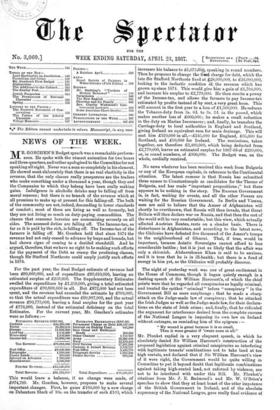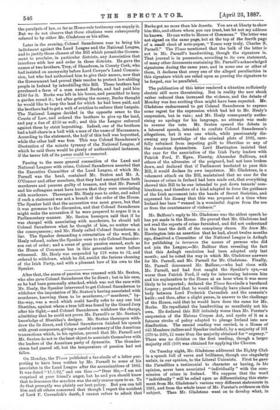The night of yesterday week was one of great excitement
in the House of Commons, though it began quietly enough in a dashing speech of Sir William Harcourt's, of which the chief points were that he regarded all conspiracies as legally criminal, and treated the epithet " criminal " before " conapiracy " in the Government Bill as mere surplusage ; that he made a sharp attack on the Judge-made law of conspiracy; that he attacked the Irish Judges as well as the Judge-made law, for their declara- tions on the state of Irish crime ; and, finally, that he ridiculed the argument for interference derived from the complete success of the National League in imposing its own law on Ireland without outrages, as reminding him of the epigram :— " My wound is great because it ia so small,
Then it were greater if 'twere none at all."
Mr. Plunket replied in a very eloquent speech, in which be absolutely denied Sir William Harcourt's construction of the proposed legislation against criminal conspiracies as interfering with legitimate tenants' combinations not to take land at too high rentals, and declared that if Sir William Harcourt's view of it were right, the Government would be quite willing in Committee to put it beyond doubt that legitimate combinations against taking high-rented land, not enforced by violence, are not to be interfered with under this Bill. Mr. Plunket's citations from Mr. J. E. Redmond's and Mr. W. O'Brien's speeches to show that they at least boast of the utter impotence of the British Government in Ireland, and of the absolute supremacy of the National League, gave really final evidence of
the paralysis of law, so far as Home-rule testimony can supply it. But we do not observe that these citations were subsequently referred to by either Mr. Gladstone or his allies.



































